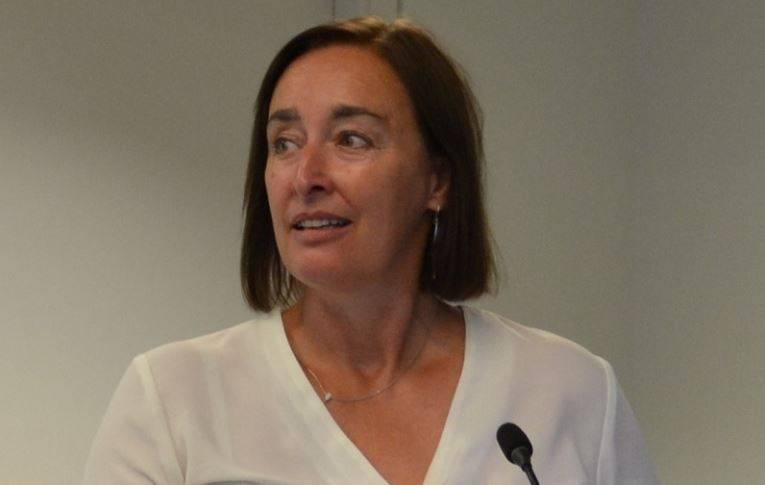This month we speak to Prof Nicola Christie to find out how her transport safety work is improving the health of the public, and how cross-disciplinary collaborations have shaped her research.
 What is your role and what does it involve?
What is your role and what does it involve?

I am Professor of Transport Safety at the Centre for Transport Studies and Director of Engagement in the Department for Civil, Environmental and Geomatic Engineering. I am also the ethics representative for the department. As a professor, my roles involve leading research into transport safety, supporting early year researchers, and teaching on the undergraduate civil engineering programme, on the MSc’s in Transport and the MSc in Behaviour Change. I supervise several PhD students on a range of topics from exploring fairness in road safety policy, to why airline pilots fall asleep on the flight deck. As Director of Engagement, I support work on Equality, Diversity and Inclusion.
How are you improving the health of the public?
Transport is something many of us experience everyday- whether walking, cycling, driving, riding a motorcycle, or taking the bus or train. My research explores the hazards and risks associated with the different ways we travel and how this impacts people’s health and wellbeing.
I co-lead the ‘healthy Places’ theme of the ActEarly study. The study looks at systemic factors that pose barriers to adopting healthy behaviours such as active travel and outdoor recreation for children and young people living in deprived areas. We are working closely with local stakeholders to co-produce and evaluate interventions aimed at supporting healthy behaviours and reducing the ‘downstream’ risks of non-communicable diseases related to lack of exercise.
My research also explores the emergent occupational risks experienced by those working in the transport-based gig economy such as parcel or food delivery. The research shows that the pressure of this kind of work leads to risk-taking and traffic rule violations, they experience fatigue, and are continually distracted by job notifications coming through the phone. This perfect storm of risk factors mean that they experience a high crash risk. The research will identify how business models can be adapted to reduce these risks.
I also lead the UCL 100 cyclists project which has developed a multifunction sensor for cyclits to report a near miss. The sensor system records speed, geospatial position, atmospheric pressure, video, sound and proximity to other road users via lidar (laser radar) and will be used to explore the safety risks experienced by people of different ages, sex and experience in different types of environments. Near misses often resemble actual crashes. The system will provide a toolkit for policy makers to provide a proactive way of managing risk by identifying potential risks before they lead to actual crashes.
What do you find most interesting or enjoyable about your work?
I love the creativity and independence of academic life and working with talented people from different disciplinary backgrounds. I enjoy supporting early career researchers and providing them with opportunities to flourish. My work is very applied and informs government policy so I feel it can make a difference – that’s very important to me.
How have cross-disciplinary collaborations shaped your research?
My research has been fundamentally shaped by working in collaboration with people from diverse disciplinary backgrounds. I have worked with clinicians to understand the impacts of injuries and health outcomes related to transport. I work with architects, engineers and computer scientists to understand how the environment impacts health and safety, and how to collect data for evidence-based policy making.
What advice would you offer to others interested in developing cross-disciplinary research?
My top tips are:
• At the development stage of a research grant make sure have responsibility for a specific work package that plays to your skill set and that you will be able to publish from
• Learn each other’s language and agree on operational definitions of key concepts. Don’t use jargon
• Be open and receptive to different views
• Get to know the team as people and meet regularly to make people feel included and avoid people disappearing down their academic silos.
What's next on the research horizon for you?
My personal grand challenges are:
• To fully understand how we can transform the most deprived areas to create safe and healthy environments for children and their families
• To explore how safety culture can address the unacceptable occupational risks experienced by people who work in transport-based services
• To develop methodologies that automate data capture and can be used to evaluate different interventions - such as the use of computer vision or telematics.
If you could make one change in the world today, what would it be?
Create free university places and reduced exam tariffs for people from deprived backgrounds to reduce elitism in tertiary education and improve social mobility - education is our future.
 Close
Close

